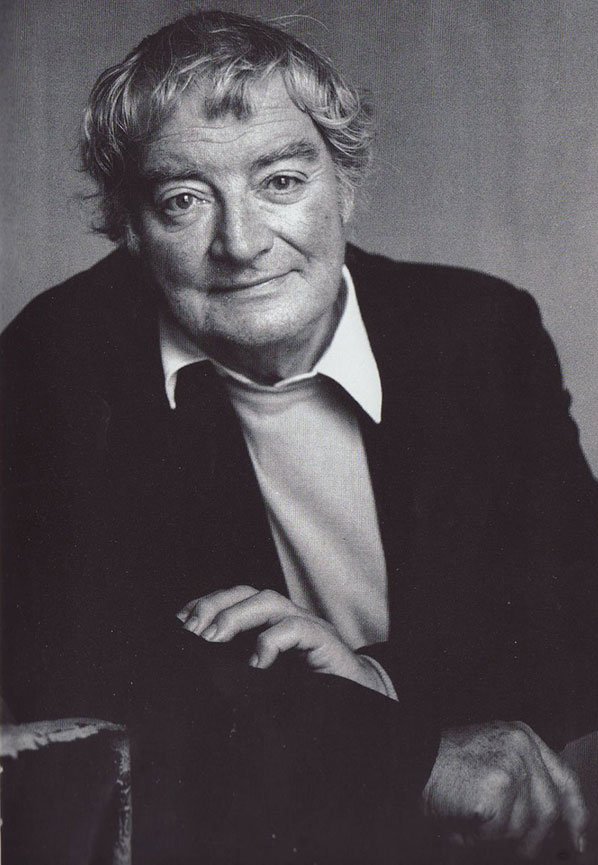
Dear Maria Lampadaridou,
I have just finished reading your essay on Samuel Beckett's work and I do not want to wait any longer to tell you how much I found this text interesting and, above all, how it moved me. I say: moved me because it's not just a rigorous, accurate analysis of the sources or structures of the work. It is not just an in-depth and documented study of a theater and its impact. It's more of a poem, a musical background, that accompanies, in the musical sense of the word, the work you are interpreting (and even here, we are almost in the field of music).
There are, of course, ideas and assessments in your text that I have read in other studies - because the facts are obvious, I would say, and are imposed on everyone, for example, the anxiety, the loneliness, the existential despair. But there are also original and adaptive judgments. Specifically, this idea, or this intuition of existence, in the deepest and most secretive layers of characters, that you call "dark memory" and which I would call "prenatal memory", in the words of a poet who is long departed, but I love very much, Roger Gilbert-Lecomte, and that is the endless memory but at the same time and not dissolved by something earlier than ourselves or in the present time of our lives.
Yes, no doubt there is a way to illuminate the abyss, I would rather say, a fragile light that looks like the spark that the Gnostic philosophers saw shining in the depths of the iris of the human eye - a memory of the first flame of the real world.
Perhaps this is exactly the truth, this density that Beckett's characters seek consciously or not.
There is, in fact, and I understand it by reading your text, something from the philosophy of the Gnostics in the literal sense, the Alexandrian, of the word within Beckett's work and within the faces of Estragon and Vladimir that have some similarities with those inspired, the desperate faces of Valentine, Vassilides, Karpocrates and so many more. But here, without a doubt (in this world, where wandering in dying cities of our souls or of the centuries is the common ground with all Vladimirs of all time, here, without a doubt, the comparison stops. Because Beckett's work is pure, 'pure' in the sense of preserved, untouched by the mythology and cosmology of the Gnostics, by the delusional visions, the agonizing ones, of the primordial Fall of Light into our own world of '' dark fire '', from Wisdom's wanderings into the icy eternities. I would say that Beckett's work is empty of this whole confusion or that post-macrophysical armor and that the Beckettian cognition is naked, with all the nudity of a present without tomorrow and a destiny without heaven.
The only vision that the modern gnostics, Beckett included, and those Alexandrian Becketts teachers of cognitive philosophy could have in common is precisely this vision of the earth, shrouded in a 'dark fire', in "a frozen molecule from the first world" to a "grave" where time itself has stopped.
"I've lived for thousands of years in this place of gloomy darkness, and no one has ever learned that I was here," says a hymn of the gnostics. Isn't there a common ground here? After all, in this frozen earth, in this ''dark fire'', where time itself is motionless, we come across your vision of time and space, of life in Beckett's work: one dead time, a neutral and without life space, a life of immobility and, therefore, a death evenly immobile.
So, one can think of those dead stars, who have lost their inner fire but continue to hover frozen in space, black and invisible, and to which astronomers have said: time and space obey different laws. Their density is so strong, so incomprehensible to our earthly mind, that time itself could be made of matter.
Injured and imprisoned in a dead star. Are we far from Beckett and the dead tree from 'Waiting for Godot'? I don't think so. In any case, reading this study made me think and dream together. And this is the essence of a text.
It teaches me that Beckett's work, unlike what other writers are constantly used to (and certainly in the classical or traditional theater) it isn't any longer the man wearing a mask (because man in Beckett's work has eliminated everything: clothes, covers of the soul and body, he is a stripped, continually expelled, and uncovered) no, it is the universe wearing its own mask. A mask trying to fill the void and the nothingness.
But how can anyone picture a mask for Nothingness? In which carnival of the dead or frozen stars?
Thank you, dear Maria Lampadaridou, for this essay that illuminated my thinking, but also pushed me away from the earth, to the ultimate boundaries of a universe being described as curved. In other words, it brought me back to man. With the long, passionate journey of a project.